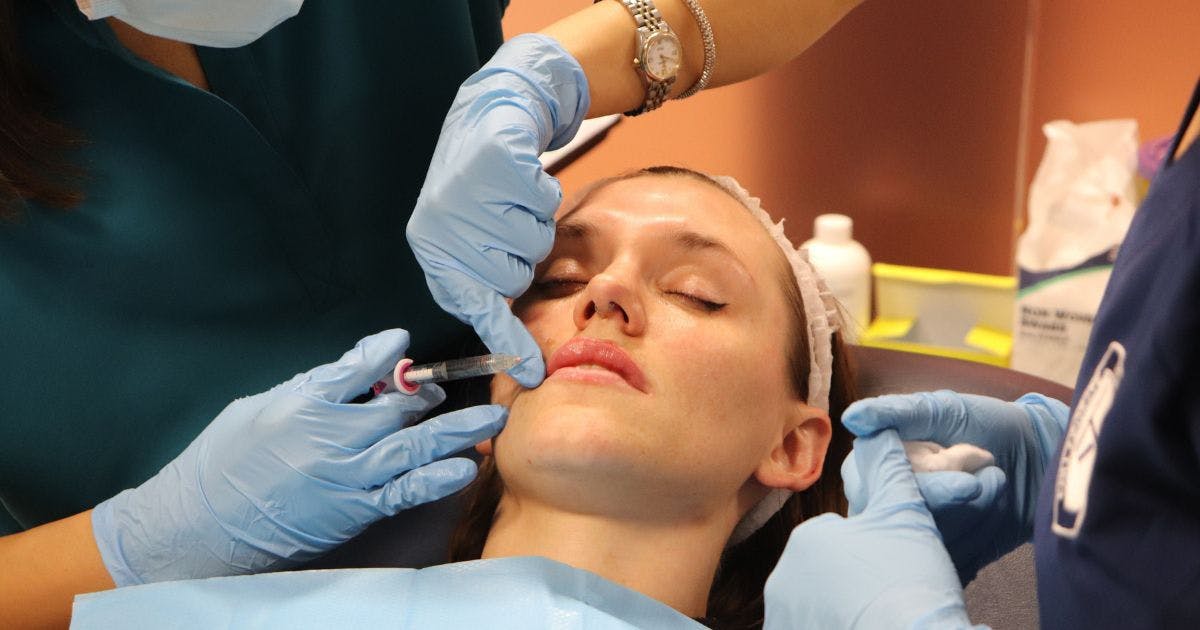4 Good Reasons to Supplement Your NHS Income with Aesthetic Practice

Considering trying to supplement your NHS income with aesthetic practice? Hear from a successful cosmetic doctor how he made the switch from NHS practice to full-time aesthetics.
Dr Marcus Mehta, is a respected facial aesthetics expert and director of Harley Academy. He is also the co-founder of STORY clinics and Comma, the global online community for medical aesthetics.
This is what he told us about why he first decided to explore aesthetic medicine…

Looking for job satisfaction and a work/life balance
“Working as an NHS doctor is often challenging, particularly with the current understaffing and intense pressure levels throughout the system,” says Dr Marcus.
“As a doctor, it’s easy to feel overwhelmed and, although most GPs work tirelessly, the system around them isn’t supportive, despite their desire to do the best for their patients. At its worst, this level of demand compromises a doctor’s home life. This can lead to an endless cycle of overwork and stress that results in an unhealthy work/life balance.”
He continues, “My own case is a perfect example. I loved being an NHS doctor but on long shifts I often found myself daydreaming. I thought about a career in an environment that would allow me to do the best for my patients and still get job satisfaction. It felt like a fantasy – it certainly wasn’t anything like my daily experience of NHS practice. But aesthetics has changed the way I think about my job. Today, I love going to work and enjoy the variety and challenges that such a fast growing sector offers.”
Opportunities offered by aesthetic practice
Dr Marcus noted that his workload is satisfying because he has the opportunity to:
- teach students who are new to the field
- treat patients
- manage complex problems
- deploy resources effectively
- have a huge impact on patients’ quality of life.
“And that’s just an average week!” he confirms. “My career change as a doctor was the best decision I have ever made, delivering a better work/life balance, a higher income and flexibility around selecting the type of work I enjoy doing most.”
He outlined a number of aspects which led him to supplement his NHS practice with aesthetic medicine work, then transition into the speciality full-time.
1. Problems with work/life balance
- All doctors are hardworking. Recent NHS contract disputes have resulted in many experiencing a loss of earnings and negative changes in work environments.
- More often than not, frustration, time pressure and limited resources lead to doctors feeling they don’t have enough time with patients and worry they aren’t doing justice to their concerns.
- As a result, many doctors are looking for a change in career, and seeking new career prospects. Aesthetic medicine is the logical solution to these pressures.
2.Aesthetic practice rewards doctors on multiple levels
- Working in aesthetics alongside your NHS career is much more lucrative and enjoyable than undertaking a locum shift in the NHS.
- Botox treatments and dermal filler treatments are calculated to contribute over £2.75 billion in the UK, a sum which is growing year upon year.
- Doctors can expect to double their NHS income by holding just four aesthetic clinics a month, at convenient times such as weekends or evenings.
- Job satisfaction is unparalleled – improving a patient’s quality of life and delivering an excellent maintenance programme to preserve aesthetic outcomes is exciting and fulfilling.
3. Doctors are uniquely well-placed to work within the aesthetics industry
- Treatments are minimally invasive, relatively low risk and carry a high satisfaction rate for patients and doctors alike.
- Doctors make excellent practitioners with transferable skills for aesthetic practice.
- A doctor is well positioned to become an expert within the aesthetics industry, offering a high level of service to patients, as well as being able to teach students and work with pharmaceutical companies as a key opinion leader.
4. Training towards excellence with Harley Academy
Doctors are eligible for the Level 7 Diploma course, which is the most thorough aesthetics training available in the UK. During this training, you’ll learn in-depth anatomy, observe 20 cases and administer 20 treatments under supervision from mentors. This kind of hands-on experience in a safe, clinical environment is the best way to learn injectable treatments.
“Changing my career direction towards aesthetics has been the best decision I’ve ever made,” says Dr Marcus. “I relish my high levels of job satisfaction. I enjoy a better work/life balance and an increased income. And that’s not all – I also have more opportunities to teach and experience a wide variety within my working week.”
If you’d like to explore how satisfying a career in aesthetic medicine can be, get in touch for personalised advice as to the best injectables course for you. Our advisors will be happy to discuss options based around your availability, goals and budget.

Creative Director at Harley Academy, Dr Marcus Mehta is a medical doctor and aesthetics specialist with a postgraduate diploma in clinical dermatology.
He offers advice, guidance and support to our community of Level 7 students and graduates, and is the co-founder of STORY Clinics and Comma, the global medical aesthetics community.
All information correct at the time of publication. Article last fact-checked: 11 January 2023
Download our full prospectus
Browse all our injectables, dermal fillers and cosmetic dermatology courses in one document
By submitting this form, you agree to receive marketing about our products, events, promotions and exclusive content. Consent is not a condition of purchase, and no purchase is necessary. Message frequency varies. View our Privacy Policy and Terms & Conditions
Attend our FREE open evening
If you're not sure which course is right for you, let us help
Join us online or in-person at our free open evening to learn more
Our Partners














STAY INFORMED
Sign up to receive industry news, careers advice, special offers and information on Harley Academy courses and services

